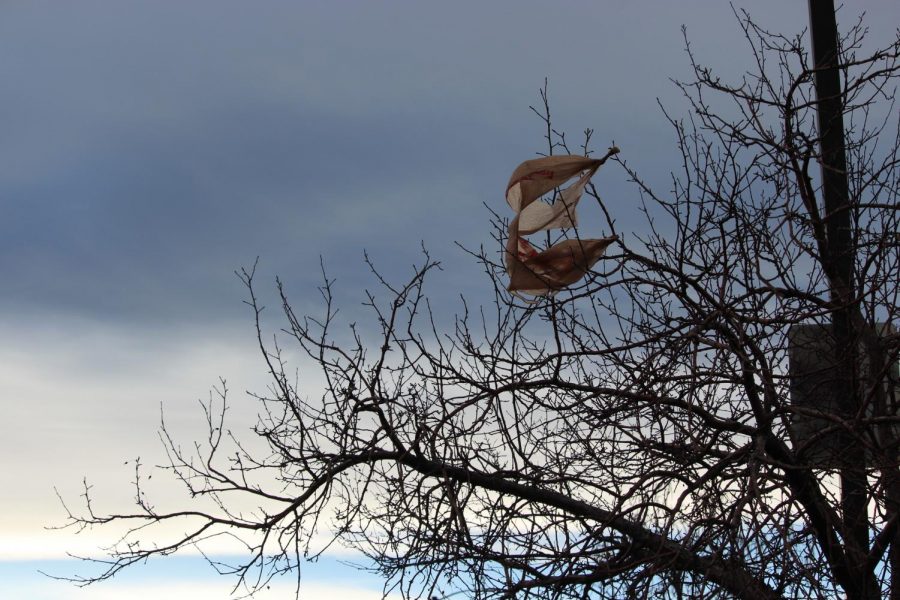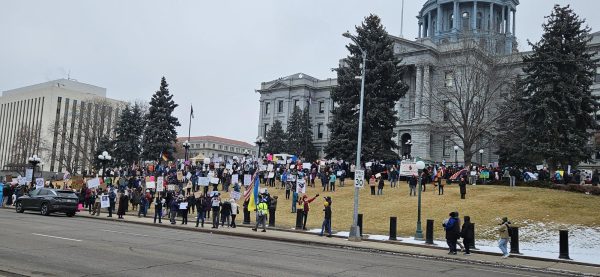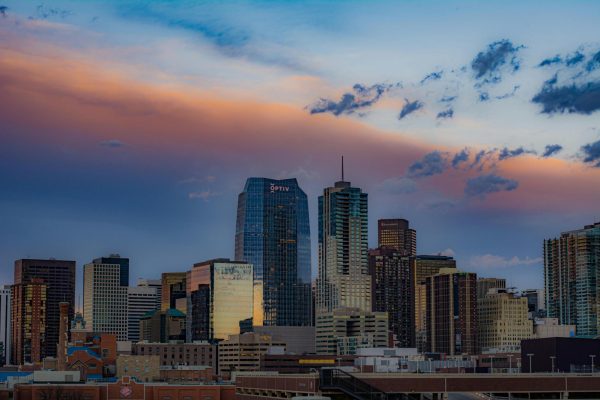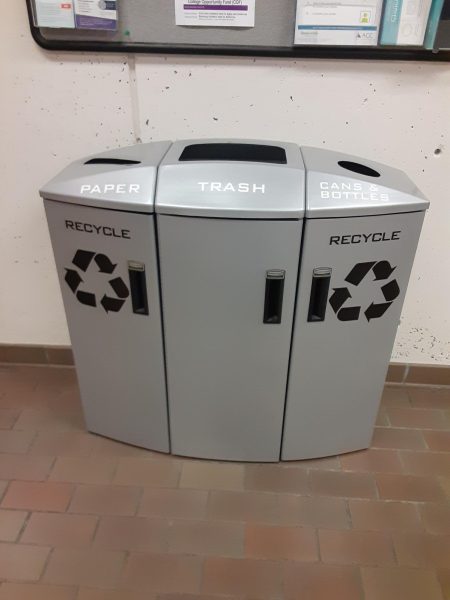Less Plastic, More Housing? Legislators Consider a Bag Tax
Image via Rachel Lorenz
Plastic bags, tangled in a tree, twist in the wind in Highlands Ranch, Colo. on Jan. 28, 2018. House Bill 1054 states that plastic shopping bags “pose a significant threat to our fragile environment.”
UPDATE, Feb. 2, 2018: House Bill 1054, aimed at increasing affordable housing with the revenue from a state-wide tax on plastic bags, died in committee on Wednesday. It was postponed indefinitely by an 11-2 vote. Two Democrats on the Local Government Committee voted in favor of the measure, while 6 Republicans and 5 Democrats voted against it.
Originally published Jan. 30, 2018.
What if Colorado could make housing more affordable and reduce plastic pollution in the process? Rep. Paul Rosenthal and Sen. Lois Court, both Democrats from Denver, have sponsored a bill that intends to do just that. House Bill 1054 proposes taxing plastic bags and using the revenue to fund housing development grants in Colorado beginning Jan. 1, 2019.
The Legislative Council predicts $50 million in revenue from this tax for the first year. In subsequent years, that number could go down as people switch to reusable bags. “Which is perfectly fine,” Rosenthal said. “It’s a tax designed to get rid of itself, unlike a lot of taxes.”
If passed, chain stores and independent stores over 2,000 square feet will be required to collect a 25 cent tax from their customers when they provide them with one or more plastic bags. This flat tax will be 25 cents whether the customer uses one bag or 20 in their transaction. Of the money collected, the store keeps 1 percent to cover its expense in administering the tax and then remits the rest to the Colorado Department of Revenue. Again, a portion will be withdrawn to cover the expense incurred by the Department of Revenue and the remainder will be deposited in the existing Housing Development Grant Fund.
According to the Colorado Department of Local Affairs website, the Housing Development Grant Fund provides funds to “improve, preserve or expand the supply of affordable housing.” For example, a $590,000 housing development grant went to Archway Investment Corporation during the fiscal year 2015-16 to support the construction of an affordable housing complex in Lakewood called 40 West Residences. The new 60-unit apartment building, which opened in October 2017, houses homeless veterans and people with low to moderate incomes.
Colorado is one of the least affordable places to live in America. But the state’s legislators are working to change that. Last year, the General Assembly passed bipartisan legislation aimed at reviving the state’s lackluster condominium construction market. This year lawmakers have introduced several more bills intending to make Colorado more livable.
But of all the ways to address the state’s high cost of living, The Denver Post Editorial Board calls HB1054 “the most novel, and controversial, plan so far.” While the bill has potential to create more affordable housing and decrease plastic bag pollution, it could also take money out of consumers’ pockets, burden business owners and add bureaucracy.
“I feel like if we leave more money in people’s pockets that they’ll be able to afford the housing that they need,” Republican Rep. Kim Ransom said. “I always think that taxing people more is not the way to make sure that people can afford a home, whether it’s an apartment or a house. I think that we need to let them have their money.”
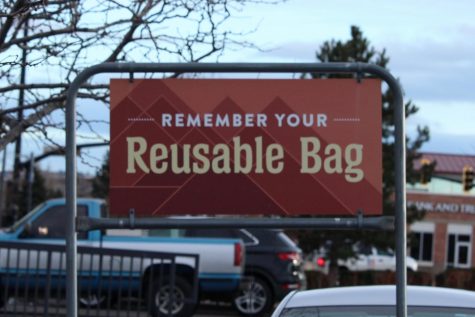
A sign in a Highlands Ranch, Colo. parking lot reminds shoppers to bring their own reusable bags into the store on Jan. 28, 2018. Reusable bags are an alternative that would not be taxed under House Bill 1054.
The bill was introduced in the House on Jan. 10, 2018, and is currently under consideration. To become a law, the bill must go through several steps. On Wednesday, Jan. 31, 2018, the House Local Government Committee will hear the bill, discuss possible amendments, listen to comments from the public and then vote on whether or not to refer it to the next committee. If it’s passed by its assigned committees, the House and the Senate, the bill will become a ballot issue. Then Colorado voters will decide its fate in the November 2018 elections.



